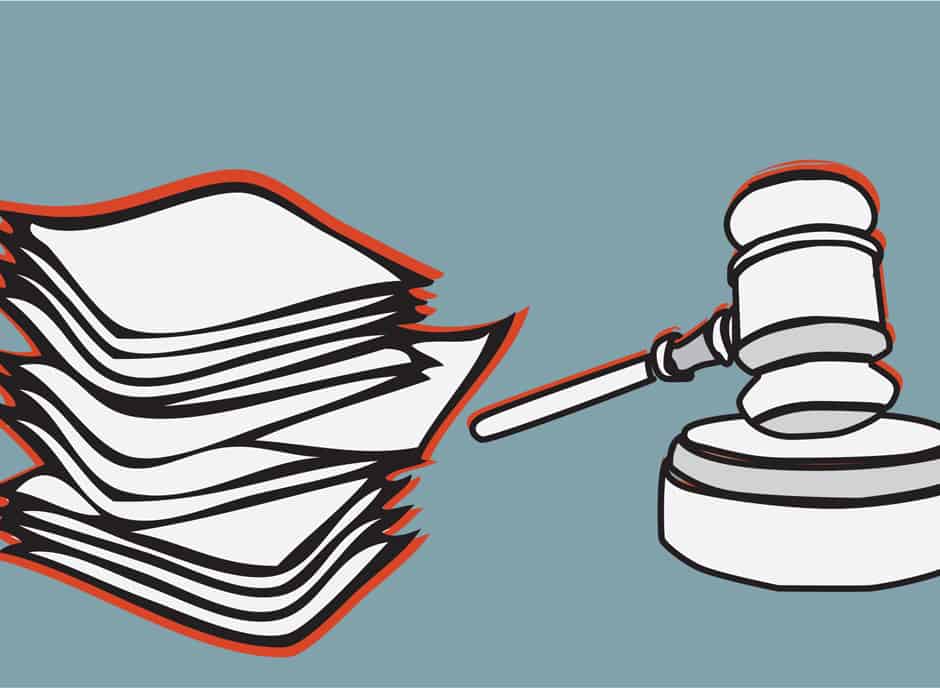Even before the Fair Elections Act received Royal Assent last June, it faced considerable criticism.
Although Pierre Poilievre, Canada’s minister of state for democratic reform and the lawmaker behind the bill, claimed that the act would ensure everyday citizens are in charge of democracy, some Canadians are calling foul on the legitimacy of his assertion.
After amendments were made to the act last spring, the Canadian Federation of Students (CFS) immediately drew attention to what it deemed were problematic aspects of the act.
The CFS and the Council of Canadians, a left-leaning advocacy group, jointly filed a charter challenge to the act with the Ontario Superior Court in early October.
“The Federation and the Council of Canadians felt that it was necessary to continue challenging these changes because the changes will undoubtedly create further barriers to voting in the next federal election,” said Jessica McCormick, national chairperson of the CFS.
“The challenge includes statements from other individuals who attest to the barriers that make it more difficult for Canadians to vote,” she added.
Act provisions
The act eliminated the use of vouching and Voter Information Cards to prove residency, and rejigged Election Canada’s mandate such that it focuses on “the basics of voting: where, when, and what ID to bring.”
“Eliminating the use of Voter Information Cards to prove residency will disenfranchise many students,” McCormick said. “For students, it can be challenging to present a piece of ID at the polls that includes the address of the riding they wish to vote in because students move frequently and may choose to vote in the riding where they’re studying rather than their home riding.”
According to McCormick, Elections Canada ran a pilot project on some university campuses where Voter Information Cards were distributed to students living on campus and those students could use the cards to prove residence.
McCormick pointed out that students will not be able to do this in the next election.
Both students and other specific demographics suffer under the act, McCormick argued.
Over 100,000 Canadians signed petitions opposing the act’s provisions during CFS’ Let People Vote campaign, which included demonstrations at Conservative MPs’ offices nationwide.
Last April, Liberal Party of Canada leader Justin Trudeau vowed to repeal the Fair Elections Act if elected prime minister.
“These restrictions will make it more difficult to encourage youth, Indigenous people, new immigrants, and many others to exercise their right to vote,” McCormick said.
Seniors and lower-income earners will also be negatively impacted, McCormick said in an October 9 news release. “The restrictions will also make it harder for the Chief Electoral Officer to communicate with Canadians about election fraud,” McCormick said.
“Mass irregularities”
According to Poilievre, the act targets election fraud.
As stated in a news release on the Canadian government’s Democratic Reform website, the act “cracks down on voter fraud by prohibiting the use of vouching and Voter Information Cards as replacements for acceptable ID. Studies commissioned by Elections Canada demonstrate mass irregularities in the use of vouching and high rates of inaccuracy on Voter Information Cards.”
“The Fair Elections Act will make our rules tough, predictable and easy to follow. It will be harder for election law breakers and easier for honest citizens taking part in democracy,” Poilievre told reporters last February.
Despite these claims, Garry Neil, executive director of the Council of Canadians, said in a CFS news release that “the government has legislated rules that will make it impossible for certain citizens to exercise their right to vote and next to impossible for citizens to challenge election results that may have been fraudulently obtained.”
The CFS and the Council of Canadians are asking the Ontario Superior Court to overturn sections of the act that they believe will unfairly suppress certain demographics in the upcoming 2015 federal election.
“We are still only in the early stages of the proceedings,” McCormick said, adding: “The application was filed earlier this month so now the federal government will have an opportunity to respond. The goal is to have the Court make a decision in advance of the next federal election.”
“The Federation filed this challenge along with the Council of Canadians because we felt it was important to continue our efforts to stop these unfair changes to Canada’s election laws from being implemented… The federal government should be finding ways to make it easier for Canadians to vote, not more difficult,” McCormick said.
Poilievre’s office did not respond to requests for comment.


